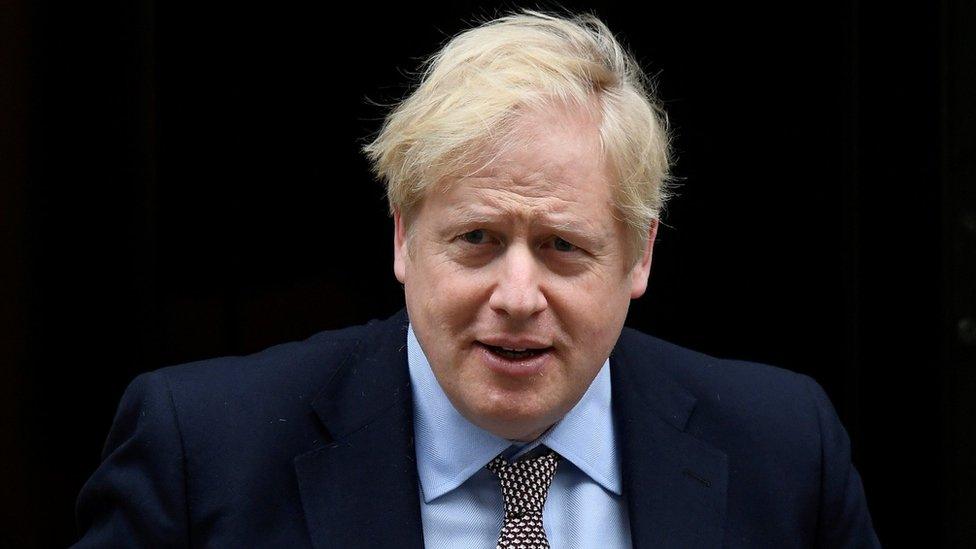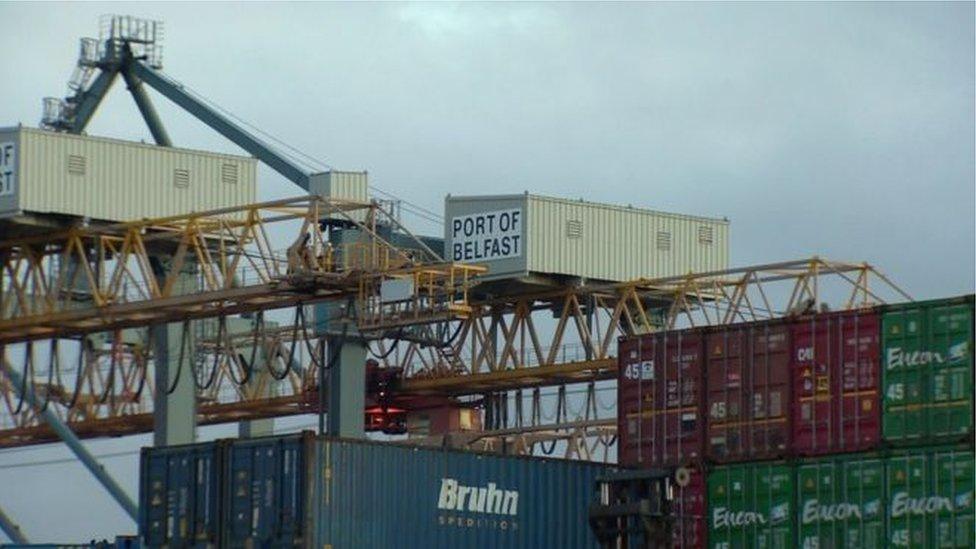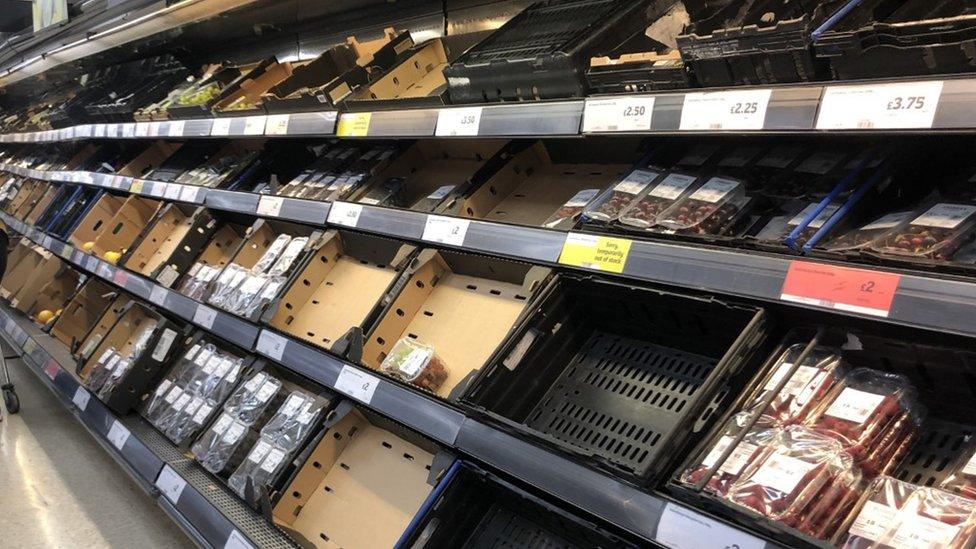Brexit: MP says teething problem remark is an 'insult'
- Published

It is an "insult" for the prime minister to describe disruption to trade across the Irish Sea border as teething problems, a DUP MP has said.
Earlier, Boris Johnson said he was assured goods were flowing "effectively" from GB to NI.
The DUP says the new arrangements are having severe economic consequences.
Ian Paisley told the Commons: "I must ask, what did we do to members on those benches over there to be screwed over by this protocol?
"It has ruined trade in Northern Ireland and it's an insult to our intelligence to say it's a teething problem."
'Urgent intervention needed'
Cabinet Office Minister Michael Gove said he accepted Mr Paisley's points, and said "more needs to be done" to ensure the protocol works successfully.
The Irish Sea border is a consequence of Brexit and means that most commercial goods entering NI from GB require a customs declaration.
On Tuesday, the UK's major supermarkets wrote to the government, warning an "urgent intervention" is needed to prevent further disruption to NI food supplies.

Speaking in the Commons on Wednesday, DUP Westminster leader Sir Jeffrey Donaldson said the government needed to step up.
He quoted a number of examples to MPs about issues being faced by his constituents since the new system of checks had begun on 1 January.
Some of these were:
Some firms have stated they were informed that certain declarations would be processed within 30 seconds only for it to take in the region of 12 hours
Supermarkets withdrawing hundreds of products from their shelves, online retailers refusing to service Northern Ireland
Of the 15 lorries to arrive in NI from GB on the first shipment under the terms of the protocol, six were directed to a border control post because they did not have the correct documentation
In the absence of guidance from HMRC, which was belatedly published on 31 December, many online retailers made the decision not to service NI
He also called for the government to extend the three-month grace period for food businesses, which was agreed to allow firms more time to phase in new checks.
The "grace period" means that supermarkets currently do not need to comply with all the EU's usual certification requirements.
Mr Gove said talks were ongoing to ensure there was a "sustainable approach" by the end of March, regarding the grace period.

While the prime minister said "so far no lorries have been turned back" and that goods had been flowing "effectively" from GB to Northern Ireland.
"What I can confirm... is that if there are problems we believe are disproportionate then we will have no hesitation in invoking Article 16," he added.
Article 16 of the Northern Ireland Protocol, agreed in the original withdrawal agreement, is essentially a safeguard that would allow the UK or EU to act unilaterally if measures imposed as a result of the protocol are deemed to be causing "serious economic, societal or environmental difficulties".
Article 16 call 'reckless'
The government has so far resisted calls from unionist parties to immediately invoke Article 16, and has said ongoing issues will continue to be worked out through the UK-EU joint committee.
Sinn Féin, the SDLP and Alliance opposed Brexit, but supported the implementation of the NI Protocol.
SDLP MP Claire Hanna said her party "didn't wish for Brexit," but in the absence of other solution the protocol needed to operate successfully.
"People here find it difficult to listen to those members who campaigned for Brexit and blocked every alternative," she said.
She described the calls to trigger Article 16 as "reckless".
Alliance MP Stephen Farry described Article 16 as a "simplistic answer" and that business groups in NI were not calling yet for that as a solution to trading friction.
The first goods crossed the new trade border between Northern Ireland and the rest of the UK on 1 January.
Sinn Féin said it has concerns, but met with wholesalers on Wednesday morning.
On Tuesday, it said 95% of the supply of fresh food arriving into Northern Ireland had been restored.
- Published12 January 2021

- Published10 January 2021
